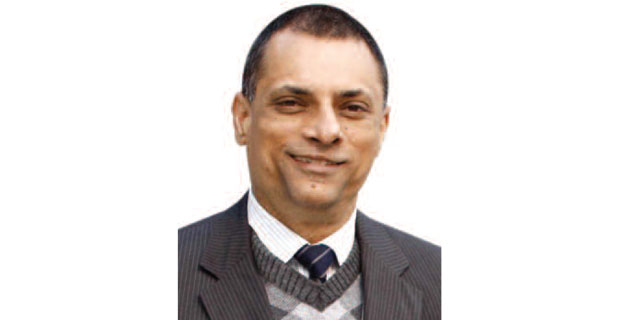Editor’s Desk
How Canada has dealt with the Khalistani issue has long been a concern for us. Quite frankly they seem to be driven by vote-bank politics
-Indian Foreign Minister S Jaishankar
On June 4 this year, an offensive tableau depicting, rather uncouthly, the 1984 assassination of Prime Minister Indira Gandhi, rolled out into the streets of Brampton during a parade. This was by far the most sinister and overt show of Khalistani muscle-flexing on Canadian soil in recent times, an indication of how far Canada with its soft, vote-bank policy has allowed Indian separatist groups to rear their ugly heads on its soil.
It appears that Canada has been unable to learn lessons from its history. In 1985, Air India flight Kanishka with 328 aboard was blown up in the mid-skies over the North Atlantic by Khalistani terrorists. Of those who died, an overwhelming majority (278 or 84 percent) were Canadian nationals. And yet the appeasement of the Khalistani separatists on Canadian soil goes on, quite unabated. This unsavory policy has led India’s Foreign Minister S Jaishankar to voice his concerns without holding back. He says that vote-bank politics has led to this crisis, with the Khalistanis in Canada crossing all limits.
Dr Jaishankar has said that the Canadian Government’s response to the threats, constrained by vote-bank compulsions, have impacted Indo-Canadian ties in many ways in the last few years. “I think there is a larger underlying issue about the space which is given to separatists, to extremists, to people who advocate violence and I think it is not good for relationships and not good for Canada,” he said.
Another voice on the Canadian side of things that has condemned the Khalistani activists shrilly is that of Chandra Arya, MP for Nepean, Ontario. He says, quite unequivocally, that the “Khalistanis in Canada continue to reach a new low in abusing our Charter of Rights and Freedom by promoting violence and hate.” In a tweet he has added that, “While it is good to see Canadian authorities are noticing, we should note the snakes in our backyard are raising their heads and hissing. It is only a question of time when they bite to kill,” the MP, who originally hails from Karnataka, has said.
On its part, the Indian government, on July 4, summoned the Canadian High Commissioner in New Delhi, Cameron MacKay, and expressed deep concern regarding the recent actions of separatist and extremist groups towards its diplomatic mission and consulates in Canada. Not only have threats been issued to India’s High Commissioner in Canada, Sanjay Varma, and the Consul General of India in Toronto, Apoorva Srivastava; similar unwarranted warnings have been issued by the Khalistanis against Indian Ambassador to the United States, Taranjit Singh Sandhu, Indian High Commissioner to the United Kingdom, Vikram Doraiswami, and Indian Ambassador to Italy, Neena Malhotra.
Thus far Canadian authorities have spoken in different voices. While MacKay has rightly condemned the presentation of the tableau, the Canadian government’s National Security Advisor Jody Thomas said that India was interfering in the internal affairs of Canada, something which led Jaishankar to comment in Hindi “ulta chor kotwal ko dante” (an approximation of the idiom ‘pot calling the kettle black’). Canada’s Foreign Minister Mélanie Joly issued a statement saying that it was unacceptable that the Khalistanis circulated flyers disturbingly proclaiming “Kill India”. She pledged to protect India’s envoys.
On the other hand, Canadian Prime Minister Justin Trudeau has denied that his Government has been soft on extremism. Sometime in early July, responding to India’s strong concerns about the rising menace of Khalistanis, he said, “They (India) are wrong. We have always taken serious action against terrorism … we will also make sure that we are pushing back against violence and extremism in all its forms.”
But studies do contradict what Trudeau is saying. In September 2020, journalist Terry Milewski writing for the Ottawa-based public policy think tank Macdonald-Laurier Institute, said, “It’s clear who’s really driving the Khalistan bus: Pakistan. The Khalistan movement has been going nowhere in the Sikhs’ home state.” The paper was titled, “Khalistan: A Project of Pakistan.”
A year later, in September 2021, the Washington, DC-based American think tank Hudson Institute came up with a paper titled “Pakistan’s Destabilization Playbook: Khalistan separatist activism within the US.” The 44-page report concluded that ignoring India’s concerns about threats to its integrity could undermine its resolve to act as America’s ally in confronting the aggressive intentions of Communist-led China, and this would constitute a significant and dangerous loss to the US.
These are portentous words from reputed think tanks. It is time for the Canadian government, in particular, to demonstrate that they can rise above vote bank politics and deal with the Khalistanis with a heavy hand. The world is watching.
Sayantan Chakravarty
sayantanc@gmail.com











Comments.